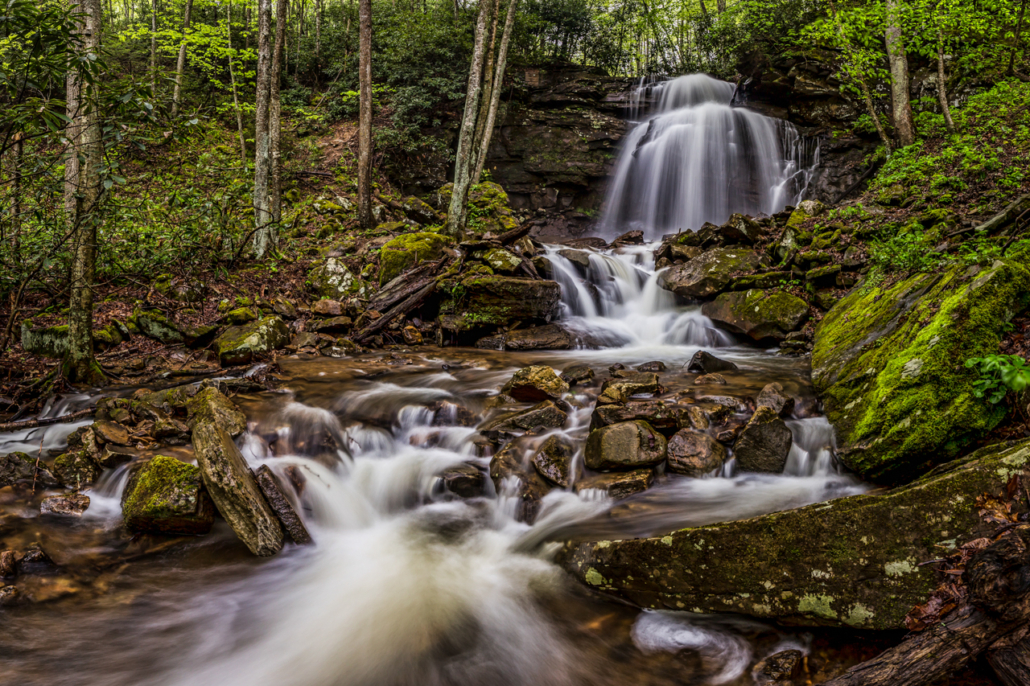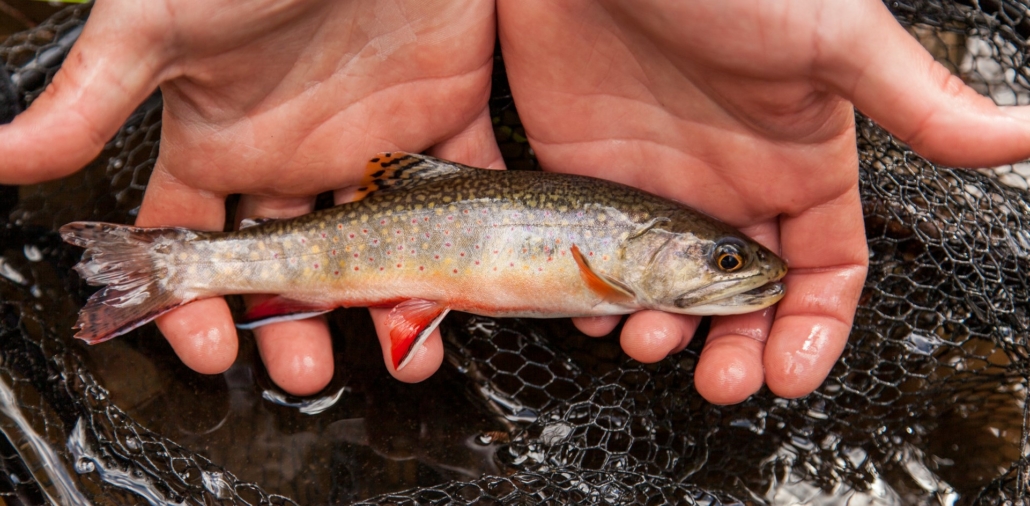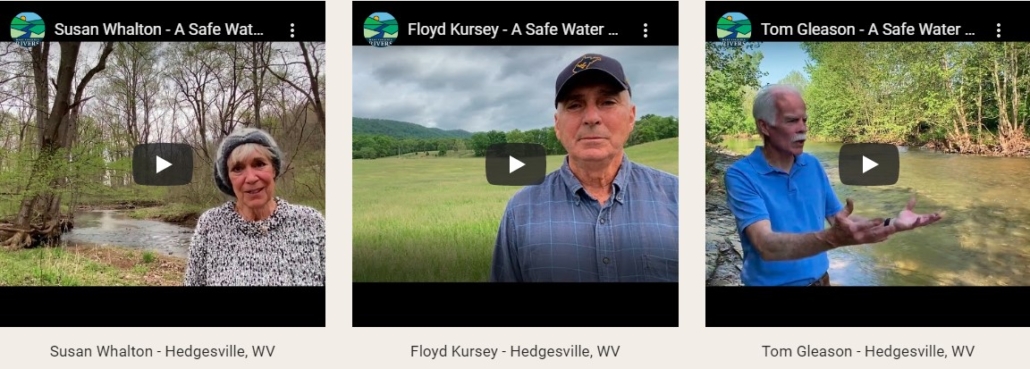WV Rivers News: New Pipeline Report, Public Lands Funding, Climate Webinars
A Time For Listening, Learning And Reflecting
“Juita Martinez says she makes sure she looks like a birder when she goes out so there’s no question what she’s doing in the outdoors.” Quote and photo from the Allegheny Front, read the article.
Racism is wrong. WV Rivers condemns racism in all forms and stands in solidarity with people of color for equity and safety.
Right now, the WV Rivers team sees it as our responsibility to listen, learn, and reflect on the experiences of Black Americans. As an organization comprised of white employees and board members, we need to do better recognizing our privilege, confronting racism, and working to undo systematic forms of oppression and injustice.
One often overlooked area of white privilege is outdoor recreation. Outdoor spaces are havens for so many activities from biking to boating to bird-watching, but it is a sad truth that many of our minority citizens do not feel safe or welcome in the places white West Virginians retreat to for solace. We encourage you to learn and reflect on the experiences of Black Americans outdoors. Here’s a short list to get you started:
- Birding While Black: A Candid Conversation
- ‘We Are Already In The Outdoors’: Black Birders Week Amplifies Black Voices
- Racist Birding Incident Sparks Joyful Online Event #BLACKBIRDERSWEEK
- ‘Bad things happen in the woods’: the anxiety of hiking while black
- The joys and challenges of exploring nature while black
- Black Birders Call Out Racism, Say Nature Should Be for Everyone
- Outdoor Afro
We invite you to join us in learning from these experiences, recognizing privilege in our own lives, calling out racism, and challenging ourselves to make the wild places we love more inclusive and welcoming for all.
Action Alert: Senate Prepares To Vote On Public Lands Legislation
Kate’s Branch in the New River Gorge by Randall Sanger.
We anticipate an imminent vote on the Great American Outdoors Act in the Senate. The Great American Outdoors Act is an extremely important piece of bipartisan legislation which provides essential funding for our public lands. With Senator Manchin as a lead sponsor of the Act and Senator Capito as a co-sponsor, it is very important that they hear from West Virginians reinforcing their leadership and support of the Act. Send a message here.
After the Senate votes on the Great American Outdoors Act, the House will take up their version of the bill. Stay tuned! We’ll share an action alert targeting House members soon.
WV Rivers’ Climate And Water Webinar Series Recordings
Brook Trout are one of the species most vulnerable to climate change.
West Virginia is home to scientists whose research is helping us understand how climate change is impacting both our state and the nation. Over the past weeks, we highlighted a few of the scientists on the front-line of the climate crisis through our Climate and Water Webinar Series. We extend a sincere “thanks” to all of the researchers who shared their knowledge through our webinars!
You can watch recordings of the webinars here.
We’re just getting the climate conversation started! Throughout the summer we’ll be hosting more webinars as part of our Climate and Water Series. Keep an eye on wvrivers.org and our Facebook page for webinar announcements.
New Report Takes A Look At Stream-Crossings By Pipelines
WB XPress stream crossing with failed sediment controls. WVDEP.
WV Rivers, in partnership with Trout Unlimited, have published a new report detailing the impacts of pipeline construction on streams and rivers. The report, Reducing Impacts of Pipelines Crossing Rivers and Streams, highlights some of impacts pipeline construction has on the water quality and aquatic life.
The report explains the permit needed to cross rivers and streams, the Army Corps of Engineers Nationwide Permit 12, which received national news coverage when a District Court in Montana ruled the permit was invalid because it did not adequately address impacts on endangered species.
Because the Montana Court issued a stay on the permit nationwide, no pipeline can use the permit until the endangered species issue is resolved.
The report also looks at the various methods used to cross streams during pipeline construction detailing the advantages and disadvantages of each crossing method. Finally, WV Rivers and TU recommend several ways pipeline construction can reduce impacts on rivers and streams during the routing and permitting phase. Read the full report here.
Protecting Drinking Water through Land Conservation – Short Videos
WV Rivers Coalition is proud to serve as the host partner for the Safe Water Conservation Collaborative, a vibrant network of more than 25 partners, including water utilities, land conservation organizations, and community groups working together with the mission “Protecting Drinking Water through Land Conservation” in the Eastern Panhandle.
We asked three local landowners to share their stories of why they chose to conserve their land and water with a conservation easement. All three landowners shared the significance of protecting their land to conserve the streams and rivers that serve as our drinking water supplies, and they encourage fellow landowners to consider conserving their farms, fields, and forests.
To watch the videos and learn more, visit the Collaborative’s website.
WV Rivers in the News
The Great American Outdoors Acts Implications For Ruffed Grouse Brook Trout Restoration Projects
Manchin lauds Great American Outdoors Act as a huge step forward
State PSC Investigation Into Fayette Co. Water Utility Underway
Report of pipeline slips in West Virginia under investigation, raises concern
Feds find safety problems at W.Va pipeline project
West Virginia lawmakers focus on clean water legislation
WVDEP Releases Draft Water Quality Standards Update
Lawmakers ask state DEP, health officials to sample water supplies for toxins
Legislature calls for water source study in W.Va.
Environmentalists to lobby Congress for boost to Chesapeake Bay cleanup









